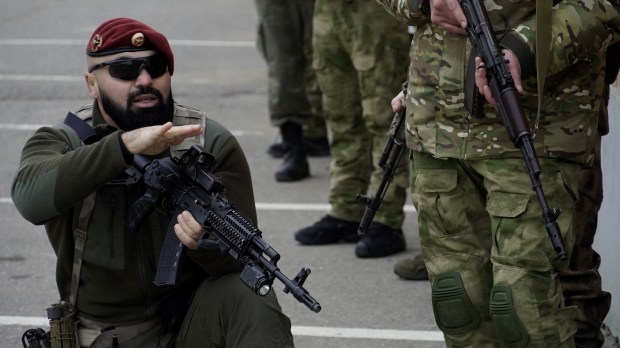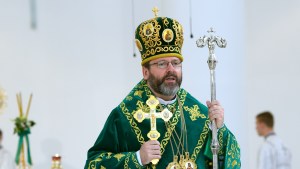The Kremlin has rejected Vatican Secretary of State Cardinal Pietro Parolin’s proposal that a dialogue between Moscow and Kyiv be hosted on the neutral territory of Vatican City.
“We’re available,” Cardinal Parolin said Monday afternoon, at the sidelines of an event on Servant of God Giorgio La Pira(1904-1977), a politician and defender of peace.
“I believe the Vatican is well-suited terrain. We’ve tried to offer possibilities of encounter with everyone, and to maintain an equilibrium. We’re offering a space in which the parties can meet and start a dialogue. It’s up to them to determine the working method and content.”
The Russian response came in a matter of hours: “I am afraid that the Chechen brothers and Buryats, as well as myself, would not appreciate it,” said Russian Foreign Ministry spokeswoman Maria Zakharova. “As far as I can remember, there were no words of apology from the Vatican.”
Zakharova was referring to an interview published by America magazine November 28, in which Pope Francis suggested Chechens and Buryats, ethnic minorities in Russia, are responsible for the worst acts of cruelty committed against Ukrainians in the present war. His comments came in the context of trying to somehow defend Russia from accusations of cruelty.
(In photo above, Chechen special forces troops attend a training session at a “Russian University of Special Forces” training center in Chechnya on December 13, 2022.)
Despite the sarcastic response from the Russian spokeswoman, the next day, December 13, Cardinal Parolin reiterated that the Holy See wants to help facilitate peace.
At a Conference hosted by the Italian Embassy to the Holy See in Rome about the need to find new diplomatic ways to end the war, and drawing inspiration from the Helsinki accords, the cardinal assured that the Holy See “is ready to do everything possible to encourage this process.”
Cardinal Parolin said that the Pope’s tears on the feast of the Immaculate Conception while he prayed for Ukraine help us to keep from becoming indifferent now that we are accustomed to hearing about the war.
A difficult position
Pope Francis said in mid-November that the Vatican was ready to do anything possible to mediate and put an end to the war. Later that month, the Kremlin said it welcomed a Vatican offer to provide a negotiating platform to resolve the conflict but that Ukraine’s position made this impossible.
“Of course, we welcome such political will, but given the de facto and de jure situation that we now have on the Ukrainian side, such platforms cannot be in demand,” Kremlin spokesman Dmitry Peskov told reporters.
Ukrainian President Volodymyr Zelensky has insisted that a complete Russian withdrawal from all parts of Ukraine, including Crimea, which Moscow seized in 2014, come before any peace negotiations can take place.
On Monday, Cardinal Parolin said, “It is difficult to know, but I think that the will is to offer a space in which the parties can meet and start a dialogue, without preconditions.”
The Vatican’s top diplomat said that “today, there are not many conditions for dialogue.”
He added, “A peace that comes from victory will cost an enormous price. I would not like to verify what the ancient Romans said: Ubi desertum faciunt, ibi pace appellant” (they made a desert and called it peace).
But he affirmed that the Holy See wants to make it a “peace in which rights and justice flourish.”
Long history
As much as the Vatican wants to help, and it’s clear that dialogue needs a miracle, the difficulty of the Vatican’s relations with Russia go back much farther than the current conflicts.
For a brief analysis of their difficult history, see Vatican reporter John Allen’s commentary here.



